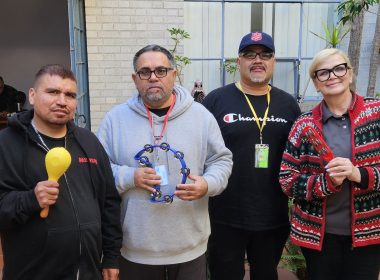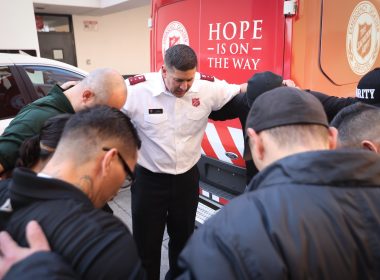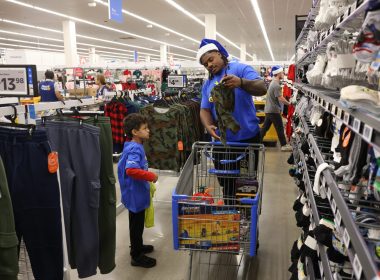BELLINGHAM, WASH.
BY TOM WALKER –
NORTHWEST DIVISIONAL SOCIAL SERVICES SECRETARY
Millions of women know the D.C. sniper. They live with him. Maybe they don’t make the connection at first, but there is something familiar about the arrogance of the sniper, the “You can’t touch me” attitude, the extreme need for power and control that is reinforced by episodic explosions. It’s called domestic violence.
Less than a year ago, Bellingham, Washington police responded to a domestic dispute involving alleged sniper John Allen Muhammad and a woman he was “dating.” The previous year, a restraining order was issued against him in Pierce County, Washington, because he committed domestic violence against his ex-wife. She now lives in (you won’t believe it, unless you are familiar with domestic violence) suburban Washington, D.C. I suspect we will learn soon that other aspects of the sniper’s life fell out of his control, so he turned back toward the one thing he could control during a certain point in his life: his wife.
If indeed John Muhammad was the sniper, or one of the snipers, he took into the street the pattern he started at home. Home is where many domestic violence survivors first heard the phrases used by the sniper:
“Your children are not safe, anywhere, anytime.”
Threats are integral to the control abusers need. Only a few acts of intermittent violence are necessary to reinforce the threat. If threats against the partner do not work, threats turn to the children of the partner. This is the reason domestic violence shelters and safe homes are hidden.
“I am God.”
The desire for power over some aspect of life is extreme for abusers. The sniper’s declaration of being God is the clearest expression of this: “I can control you. There is nothing you can do about it.” Abused women live with that every day.
The plague of domestic violence is nothing new. Psalm 55, nearly 3,000 years old, provides an accurate description of what survivors of domestic violence feel:
“Fear and trembling come upon me, and horror overwhelms me,
And I say, ‘O that I had wings like a dove!
I would fly away and be at rest…
I would haste to find me a shelter…
It is not an enemy who taunts me. Then I could bear it…
But it is you, my equal, my companion….” (Revised Standard Version)
October, the month of the D.C. sniper, is National Domestic Violence Awareness Month every year. Every year, we will have an opportunity to remember the sniper’s acts of terror and connect them to the terror many people live with at home. But though we could do little about the sniper, there is much we can do about domestic violence.
It is a problem largely specific to men. Your partner does not force you to hit. It is your choice. Your life is out of control. Get help.
The majority of domestic violence victims are women. It is not your fault that your partner hits, threatens, and tries to control you. Get help, before it’s too late. To contact the National Domestic Violence Hotline, call 1-800-799-7233.
For many of the citizens of D.C., Maryland, and Virginia, the fear of attack is over now. For others, it moved back indoors. As Domestic Violence Awareness Month comes to a close, this sniper experience can make us more aware of the same patterns in our homes. There may be nothing we can do for the sniper’s victims. But we can all help end domestic violence.
National Domestic Violence Hotline: 1-800-799-7233









